Bilbao (Spain Biscay Basque Country)
Cruise Port schedule, live map, terminals, news
Region
Western Europe - Azores - Canary Islands
Local Time
2024-11-21 20:56
 53°F
53°F 11.7°C

 Light breeze
Light breeze2.7 m/s
 61 °F / 17 °C
61 °F / 17 °C 44 °F / 7 °C
Port Bilbao cruise ship schedule shows timetable calendars of all arrival and departure dates by month. The port's schedule lists all ships (in links) with cruises going to or leaving from Bilbao, Spain Biscay Basque Country. To see the full itineraries (ports of call dates and arrival / departure times) and their lowest rates – just follow the corresponding ship-link.
| Day | Ship | Arrival | Departure |
|---|---|---|---|
| 19 November, 2024 Tuesday | 07:00 | 17:00 |
Bilbao is a major port (ferry and cargo) and Spain's Biscay Province's capital city, with population around 350,000 (metro around 1,04 million). The city is also part of Spain's Basque Country region and located near the border with France. By population, the city is ranked Spain's 10th-largest, while Greater Bilbao (metropolis) is ranked Spain's 5th-largest.
The Port is at Biscay Bay, while the city's downtown is approx 16 km (10 mi) to the southeast. In 2016, the cruise port reported a 19% increase in ship calls over 2015 (51 calls) and a total of 85071 tourists (21% increase over 2015).
Established in the 14th century as a settlement of ironworkers and mariners, in the following centuries, the town prospered in trading (export of wool and iron goods) including with Spain's American colonies. Following the heavy industrialization in the late-19th-early-20th-centuries, the metropolis became Spain's second-most industrialized (after Barcelona), growing in population and territory via mergers with neighboring municipalities.
Port Bilbao
Port Bilbao (aka Superpuerto, locode ESBIO) is located on Bilbao Abra Bay, along Ria de Bilbao. Port's main facilities are in the municipalities Santurtzi and Zierbena, located approx 15 km (9 mi) to the west.
The seaport complex covers a land area of approx 3 km2 (773 acres / 313 hectares) and water area approx 17 km2 (4186 acres / 1694 hectares). Bilbao Harbor's waterfront has a length of 17 km (11 mi).
As a cargo port, Bilbao is ranked Spain's largest and 4th-busiest (following Algeciras, Barcelona, Valencia). On March 27, 2011, the French shipping company BRITTANY FERRIES started a weekly scheduled service on the route Portsmouth-Bilbao (via Roscoff France) with the Cap Finistere ferry.
For FY2017, Port Bilbao reported a 7% shipping traffic growth (or an increase of 2,2 million tons over FY2016) to a total traffic volume (excluding local shipping and supplies) 34,2 million tons.
The main increases were of liquid bulk cargoes, natural gas (+811,000 tons), gasoil (+470,000 tons), crude oil (+277,000 tons). The main dry cargo increases were scrap iron (+120,000 tons), iron and steel products (+101,000 tons), other minerals (+94,000 tons).
Container shipping traffic in 2017 reached 604,870 TEU-containers, or 1,37% increase over 2016. The growth in reefers (refrigerated containers) was 2%. A total of 5514 units were shipped as "heavy load" or "project cargo" due to their great weight or dimensions. This type of cargo shipping grew by 23% over 2016.
In 2017, the Port's passenger shipping traffic (ferries and cruise ships) traffic decreased by 2 % (to a total of 186,546 passengers). The port handled a total of 123 ferry and 61 cruise ship calls (51 calls in 2016). Cruise tourists are now handled at the new Getxo Terminal (2017-opened maritime station).
The Port mainly serves European Atlantic shipping traffic (market share 41%), followed by North American Atlantic and African Atlantic. By country, the port's main traffic is with the UK (16% growth). Mexico and the USA. Port's turnover in 2017 increased to EUR 68,8 million (+5,47% compared to 65,2M in 2016). Port's net bank debt remained at EUR 139,8M.
The BilbOPS project (OPS stands for Onshore Power Supply) is based on renewable energy sources (wind, solar, wave power) and involves installing 11 connection points on 7 quays. The EUR 47,5 million (~USD 51M) project is expected to be completed in 2025. Of all the money, 30% (EUR 14,2M) was co-funded by the European Commission (through CEF Transport 2021-2027). The investment includes the construction of a photovoltaic plant (for self-consumption purposes), as well as providing alternative bunker fuel services (via partnership with PetroNor E&P/1968-founded Spanish oil and gas company) including hydrogen and LNG. Also will be installed 48x charging stations for electric cars.
Bilbao cruise port
The Port's cruising season runs from early April through early November.
During season 2016, the cruise port handled 51 calls (an increase of 19% over 2015) and a total of 85,071 tourists (21% increase over 2015). Statistics also showed that of all tourists, ~58% were from the UK and ~14% from the USA.
In 2015, the Port's cruising sector estimated impact on the region was ~EUR 7,27 million, also generating EUR 0,81M fiscal return.
On June 29, 2017, the new passenger terminal hosted the "Bilbao Bizkaia Cruise Forum". The event was aimed at a worldwide audience of professionals within the cruise port sector, travel agencies, auxiliary industry, tourism-related institutions, tour guides, managers of hotels, restaurants, museums, shops and all other local businesses that benefit from Port Bilbao's cruise shipping services.
On February 16, 2018, the Port (via the newly formed ITSAS GAS company) conducted its first ship-to-ship LNG bunkering (fueling with liquefied natural gas).
- ITSAS GAS is a joint venture of Port Authority of Bilbao, Basque Energy Entity (Government agency), Remolcadores Ibaizabal and Naviera Murueta (shipowner of Oizmendi).
- The LNG bunker supply vessel Oizmendi (fka Monte Arucas) was previously refitted to enable to hold (together with its conventional fuel tanks) two additional LNG tanks (capacity 300-m3 each), where the gas is stored in a liquid state (at -161 C) reducing its volume 600 times. The ship's reconstruction works took 7+ months, cost EUR 5,5 million and were done at Astillero Murueta shipyard.
In September 2021 started construction works on the LNG bunker terminal. The project is via partnership with Brittany Ferries and Repsol SA (1987-founded Spanish energy and petrochemical company) and is scheduled for completion in 2022-H1 (first half).
- The LNG Terminal serves mainly LNG-powered cruiseferries deployed on the UK-Spain routes (via France).
- The new terminal has storage capacity 1000 m3 (one LNG cryogenic tank that keeps the natural gas in a liquid state at -160 C).
- This project included an investment by Repsol SA of ~EUR 10 million (~USD 11,8M / ~GBP 8,6M).
- A second LNG Terminal (also via Repsol) was constructed in Port Santander.
Both LNG terminals were co-financed by the European Commission through CEF-Connecting Europe Facilities (EU funding programs).
In late July 2022 was announced a project for shore power connectivity at Prot Bilbao, as well as building Onshore Power Supply infrastructure across the entire Port area (14x total connection points) serving ferries, cruise vessels and container carriers. The project (budgeted EUR 14+ million, scheduled for completion/inauguration in 2026) was financed by the European Union with co-funding from the world's largest cruise companies - Carnival UK, RCI-Royal Caribbean, MSC, TUI. Shore-to-ship power allows the berthed vessels to receive city-grid electricity (needed for the onboard hotel service) allowing them to switch off the main engines, thus reducing the in-port noise and air pollution.
In pre-COVID 2019, the cruise port handled 50 ship calls, in 2020 the cruise shipping operations were suspended, and in 2021 it received only 14 calls.
In 2022, the cruise port handled a total of 78 ship calls (including 20 maiden) and 108154 tourists (including 1066 embarked/1022 disembarked, and the remainder were transit passengers).
In 2023, Port Bilbao received a total of 80 cruise ship calls (including 13 maiden) and handled 148791 passengers (41% from the UK, 27% North Americans, 13% Germans).
Bilbao cruise terminal
Currently, Port Bilbao has two passenger terminals (Olatua and Maritime) and three cruise berths. The new Olatua Terminal has one berth (Getxo 3) and was inaugurated in March 2022. The old Maritime Terminal has two berths (Getxo 1 and Getxo 2).
Getxo cruise terminals are approx 12 km (9 mi) from downtown and approx 24 km (18 mi) from Bilbao Airport.
The cruise port is served by the following bus lines - A3531, A2151, A3411, A3414, A3338, A3451, A2161, A2162, A3422, and A3471.
OLD/Bilbao MARITIME Cruise Terminal (Getxo 1 & 2)
Berth Getxo 1 has length 366 m (1200 ft) while Berth Getxo 2's length is 318 m (1043 ft), which defines their berthing capacity (the vessel's max LOA length). Maritime Terminal can accommodate vessels with max draft 12 m (40 ft) and has total area 6750 m2 (including 1700 m2 terminal building/interior space).
The facilities are served by four gangways (passenger bridges) including 3x 12 m and 1x 10 m in length.
Maritime Terminal has the following facilities: BAGGAGE CONTROL (289 m2), WAITING ROOM (316 m2), TOURIST INFORMATION (32 m2), PORT AUTHORITY OFFICE (30 m2), CHEK-IN AREA (43 m2), EMBARKATION SECURITY CONTROL (103 m2), EMBARKATION BAGGAGE AREA (148 m2), RESTROOMS (52 m2 total), DRESSING ROOM (15 m2), VIP ROOM (42 m2), 3x OFFICES (23 m2 + 33 m2 + 31 m2).
NEW/Bilbao OLATUA Cruise Terminal (Getxo 3)
Berth Getxo 3 has length 355 m (1165 ft/max LOA length). It can accommodate vessels with max draft 12 m (40 ft) and has total area 27413 m2 / 90,000 ft2 (including 3200 m2 / 10,500 ft2 terminal building/interior space).
The new Olatua Terminal is served by four gangways (passenger bridges) with lengths 3x 12 m and 1x 10 m.
Olatua Terminal has three separate areas - EMBARKATION AREA, DISEMBARKATION AREA, and COMMON AREA, with total interior space 1774 m2 (19095 ft2) of which 1592 m2 (17136 ft2) is useful.
The EMBARKATION AREA consists of WAITING ROOM (24 m2), CHECK-IN AND BAGGAGE CONTROL (257 m2), EMBARKATION STAIRS (155 m2), EMBARKATION LIFT (37 m2), TOILETS HALL (31 m2), WOMEN’S TOILET (17 m2), MEN´S TOILETS (16 m2), ADAPTED TOILETS (6 m2).
The DISEMBARKATION AREA consists of ARRIVAL DEPARTURES AREA (24 m2), BAGGAGE CLAIM AREA (796 m2), TOURIST INFORMATION (30 m2), DISEMBARKATION STAIRS (26 m2), DISEMBARKATION LIFT AREA (59 m2), ADAPTED TOILETS (8 m2).
The COMMON AREA houses STAIR 1 (10 m2), STAIR 2 (5 m2), STAIR HALL (14 m2), HALL (12 m2), SUPPLY INSTALLATION (5 m2), ELECTRICAL PANEL (9 m2) and AIR CONDITIONING (29 m2).
The MEZZANINE FLOOR has total area 576 m2 (6200 ft2, of which 481 m2 / 5177 ft2 useful) and houses STAIR 1 (12 m2), STAIR 2 (4 m2), HALL (120 m2), WOMEN'S TOILET (10 m2), MEN'S´TOILET (10 m2), ADAPTED TOILET (10 m2), WOMEN´S DRESSING ROOM (7 m2), MENS´ DRESSING ROOM (7 m2), VIP ROOM (31 m2), OFFICES (122 m2 total), SHIPPING AGENTS' OFFICE (39 m2) and DRESSING ROOM (7 m2), SERVER ROOM (7 m2).
The FIRST FLOOR has total area 1193 m2 (zzz ft2, of which 1144 m2 / zzz ft2 is useful).
- Floor 1's EMBARKATION AREA consists of WAITING ROOM (517 m2), CHECK-IN AREA (72 m2), PASSENGER EMBARKATION CONTROL (47 m2), EMBARKATION STAIRS (25 m2), HALL (70 m2), WOMEN'S TOILETS (21 m2), MEN'S´TOILETS (20 m2), ADAPTED TOILET (6 m2), PRE-EMBARKATION HALL (25 m2).
- Floor 1's DISEMBARKATION AREA consists of DISEMBARKATION AREA (218 m2), DISEMBARKATION STAIRS (26 m2), DISEMBARKATION HALL (63 m2), PRE-DISEMBARKATION HALL (480 m2), STAIRS (12 m2).
Olatua Terminal's first cruise liner was P&O UK's Britannia.
On December 23, 2016, started interior works on the new cruise terminal building, following the structure's completion in November 2016. The new facility (at Cruise Pier 3) is the Port's 3rd Getxo berth dedicated to cruise vessels.
The winning bidder for the construction works was a temporary consortium working with EUR 4,6 million budget.
In summer 2016 (April through June) was built the reinforced concrete structure. Works included foundation and forging of the terminal building's mezzanine and first floor.
Between July-October 2016 was completed the facility's metal structure, serving as a roof support. Followed works on the building's air-conditioning, electricity, flooring, painting.
On the quay was constructed an outside gangway bridge for passenger embarkation/disembarkation (to and from the building). These works alone cost ~EUR 1 million.
The terminal building's height is 15 m (50 ft) high, with a covered area of 3200 m2 (34500 ft2). It is designed as a rectangular glass container and consists of 2 main floors (mezzanine in between). The lower floor has a tourist information desk, reception and check-in counters (for embarking passengers). Here are also the luggage collection area (for disembarking passengers) and the waiting hall. On the mezzanine level is the terminal's VIP Lounge plus offices.
Bilbao's new cruise terminal project also included upgrading the existing pier with long-stay parking (capacity 222 cars). The parking can also be used by Bilbao residents in no-ship days (when there are no docked cruise ships).
Additional 31 car lots were created for the terminal's staff, plus 8 lots for vehicles of disabled passengers, 10 lots for taxis and 40 lots for tourist coaches.
The Olatua Terminal's building (designed as a glass container, height 15 m / 50 ft) has independent routes and stairs for the embarking and disembarking passengers. The interior is sized ~3200 m2 (34450 ft2) and consists of two floors (plus the mezzanine floor). The ground floor houses the Lobby (reception, luggage handling, tourist information desk). The mezzanine floor houses a VIP Room and offices. The first floor houses the Waiting Hall, passenger boarding and landing areas.
Attached to the terminal building is a 169-m/555-ft-long exterior walkway/gangway that provides cruise tourists direct access to their ship.
- Accidents
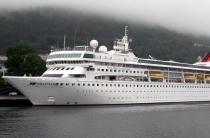
Villa Vie Odyssey finally sets sail after 4-month delay
The Villa Vie Odyssey finally departed from Belfast (Northern Ireland) on Monday night (September 30th) after a 4-month delay but encountered further...
October 4, 2024 - Cruise Industry
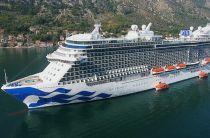
Sky Princess offers front-row seat to Solar Eclipse on Mediterranean cruise
The upcoming total solar eclipse on August 12, 2026, presents a unique opportunity for travelers aboard the Princess cruise ship Sky Princess...
May 5, 2024 - Cruise Industry
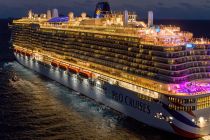
P&O UK unveils summer 2026 cruises with early booking discount
P&O Cruises UK has unveiled its summer 2026 program, accompanied by an enticing early-bird booking promotion. The itinerary collection...
April 17, 2024 - Cruise Industry
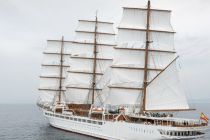
Sea Cloud Cruises presents authentic itineraries in its 2024 brochure
Sea Cloud Cruises has unveiled its 2024 brochure titled "Authentic Sailing Journeys," offering a comprehensive overview of the experience on board...
December 6, 2023 - Cruise Industry
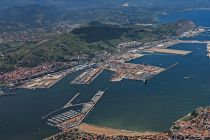
Spain's Port Bilbao wraps 2023 season with 80 cruise ship calls and plans for Shore Power
The Port of Bilbao, Spain, has brought its 2023 cruise season to a close, marking the culmination of 80 calls and ~150,000 passengers throughout the...
December 4, 2023 - Cruise Industry

Spain's Port Bilbao sets new record in terms of cruise ships visiting in a single month
Port Bilbao (Spain) has scheduled 20 cruise ship visits this September (booked berthings), which is a new record for the port in terms of vessels...
September 14, 2023 - Cruise Industry
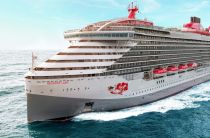
Virgin Voyages unveils 19 new ports and 27 cruise itineraries through April 2025
Virgin Voyages is unveiling 19 new ports and 27 exciting itineraries available until April 2025. These offerings cater to diverse preferences...
September 8, 2023 - Cruise Industry
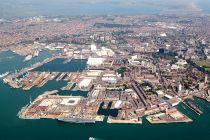
Virgin Voyages returns to Portsmouth UK in 2024
Virgin Voyages is slated to return to the United Kingdom in 2024, following its inaugural sailing from Portsmouth International Port with the Scarlet...
September 5, 2023 - Cruise Industry
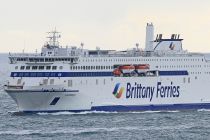
Brittany Ferries’ direct service Ireland-Spain confirmed for 2024
Brittany Ferries has confirmed its direct service between Ireland and Spain for 2024 and has released 2024's schedule. The year-round service will be...
July 26, 2023 - Cruise Industry

MSC Cruises chooses Bilbao (Spain) as embarkation/homeport for MSC Grand Voyages itinerary
Starting on October 30th, MSC Virtuosa will embark on a 23-night voyage encompassing various destinations like Naples Italy, Piraeus-Athens Greece...
July 20, 2023 - show more news
